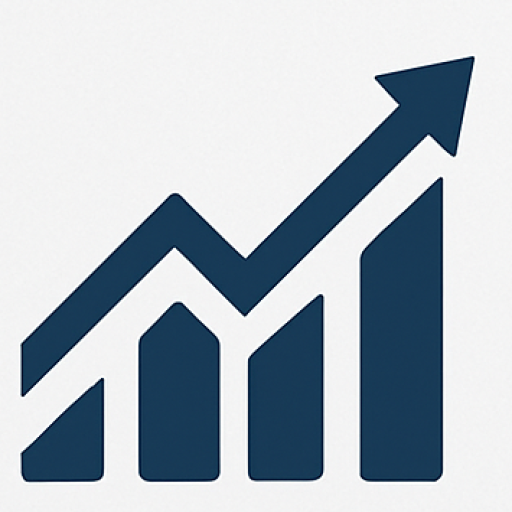Owning a business, whether it is a small startup, a growing freelance career, or an established company, changes your financial life in profound ways, and one of the most critical but overlooked areas where this change is felt is in your personal budgeting. Many entrepreneurs and business owners pour their heart, soul, and finances into their ventures, often blurring the lines between what belongs to their business and what supports their personal life. This confusion, if not managed with clear boundaries and thoughtful planning, leads to inconsistent personal income,
chaotic household budgeting, and the dangerous habit of using business funds to support personal expenses or vice versa. Personal budgeting as a business owner is not just about balancing a checkbook or using a budget app; it is about creating a structured approach that takes into account the irregular income that often comes with entrepreneurship, sets aside taxes proactively, plans for personal savings and investments, and ensures your household financial obligations are consistently met no matter what your business is doing in a given month. It requires a financial mindset shift: seeing yourself not only as a business owner but also as an employee of your business who deserves a stable paycheck, financial security, and a clear plan for future goals.
The Unique Challenge of Irregular Income

One of the first challenges business owners face when creating a personal budget is dealing with irregular income. Unlike employees who receive a predictable paycheck every two weeks or monthly, business owners often deal with fluctuating revenue streams that vary based on sales cycles, market trends, client payments, or seasonal changes. This makes it impossible to follow traditional budgeting models that assume steady income. Instead, business owners must build their personal budgets on a conservative baseline calculating their essential living expenses (housing, food, insurance, transportation, utilities, debt payments) and ensuring that their regular business draws or salaries cover these needs, even during slow months.
A best practice is to determine the average monthly income based on the lowest-earning months of the year and base your household budget on that number. Any income above that baseline during better months can be allocated to savings, debt reduction, or discretionary spending. This approach prevents lifestyle inflation during profitable months and provides a safety net during lean times, making your personal finances more resilient.
Paying Yourself a Consistent Salary
One of the smartest personal budgeting strategies for business owners is to establish a consistent salary or owner’s draw from the business, treating yourself as an employee rather than taking random payments from the business account whenever you need money. This salary should be based on what the business can sustainably afford while leaving enough retained earnings for business expenses, taxes, and growth.
By setting a fixed monthly or bi-weekly payment for yourself, you create predictability in your personal cash flow, making household budgeting easier and less stressful. If your business has a profitable month, leave the excess funds in the business account or transfer them to a business savings account for future investments or cash flow fluctuations rather than immediately increasing your spending. This disciplined approach separates your role as the business operator from your personal financial needs, creating a healthier relationship between your business and your household finances.
Separating Business and Personal Finances Completely
No personal budgeting strategy will work effectively if your business and personal finances are intertwined. Business owners must establish clear boundaries by maintaining separate bank accounts, credit cards, and financial tracking systems for their business and personal expenses.
This separation ensures that your budget reflects only your household income and expenses, not the inflows and outflows of your business. Without this clarity, it becomes impossible to know how much money you truly have available for personal spending, leading to overspending, missed bills, or accidental tax compliance issues. Separate finances also protect your assets in the event of legal or financial trouble within the business and make tax preparation far simpler. With clear separation, your budget becomes a true reflection of your personal financial life, independent of your business’s operational complexities.
Planning for Taxes in Advance
One of the most common budgeting pitfalls for business owners is forgetting to plan for taxes throughout the year. When you own a business, taxes are not automatically withheld from your income like they are for employees. Instead, you are responsible for estimating your quarterly tax payments and setting aside a portion of your business income to cover them. Many financial experts recommend setting aside 25% to 35% of your net business income for federal, state, and local taxes, depending on your location and business structure.
By regularly transferring this money into a separate savings account reserved solely for taxes, you avoid the panic of having to come up with a large tax bill at the end of the year. For your budget, this means that the income you pay yourself from your business is already net of tax obligations, making your income more predictable and avoiding the temptation to spend money that belongs to the government.
Building an Emergency Fund for Personal and Business Expenses
Every personal budget should include an emergency fund, but for business owners, the need for financial buffers is even greater. Ideally, you should have two emergency funds: one for your household expenses and one for your business operations.
Your personal emergency fund should cover 3 to 6 months of essential living expenses, providing a safety net in case your business experiences a downturn, you face a personal health crisis, or the unexpected happens. Your business emergency fund, on the other hand, should cover at least 3 months of fixed business expenses such as rent, payroll, utilities, and subscription services.
These funds act as your first line of defense against financial instability, reducing the need to dip into personal savings to cover business shortfalls or to raid business funds for personal emergencies. By proactively saving for the unexpected, you protect both your family’s financial security and your business’s survival.
Accounting for Business Reinvestment and Growth
Your personal budget should also account for the reality that as a business owner, you will occasionally need to reinvest profits back into your company for growth whether it’s purchasing new equipment, hiring staff, upgrading technology, or expanding marketing efforts.
This means your business draw should not claim 100% of the business’s profits. When creating your personal budget, set your lifestyle around a conservative and sustainable draw, leaving room for business investments. This approach ensures that your business has the capital it needs to grow without causing financial strain in your household. It also prevents the emotional rollercoaster of inflating your personal lifestyle during profitable months, only to cut back painfully when you need to fund business expansion. A balance between personal financial stability and business growth is the hallmark of a wise entrepreneur.
Managing Debt Strategically
Both your personal and business finances may involve debt, and managing that debt strategically is critical for maintaining a healthy budget. On the personal side, prioritize paying down high-interest consumer debt such as credit cards and personal loans, as these drain your cash flow and erode your financial stability. In your business, debt such as equipment loans or lines of credit may be necessary for growth but should be used thoughtfully and repaid on a schedule that aligns with your revenue. Avoid the dangerous habit of using business credit to fund personal expenses or using personal credit to cover business shortfalls unless it is a planned, temporary measure with a clear repayment plan.
By managing debt with intention, you protect your credit score, maintain access to financing when needed, and free up cash flow for your personal and professional goals.
Tracking Personal Spending with the Same Discipline as Business Expenses
Many business owners apply rigorous financial management to their companies but neglect their personal spending, leading to leaks in their household budget that undermine their financial progress. Use the same discipline you apply to your business in your personal finances.
Track your spending categories, set spending limits, and review your budget regularly to identify areas where you can cut back or optimize. Personal budgeting apps like YNAB (You Need a Budget), Mint, or EveryDollar can help automate this process, giving you real-time visibility into where your money is going. Regularly reviewing your personal budget alongside your business financials creates a holistic view of your overall financial health and allows you to make informed decisions that benefit both sides of your financial life.
Planning for Retirement and Personal Financial Goals
One of the greatest risks for business owners who neglect personal budgeting is failing to plan for their own retirement and long-term financial goals. Many entrepreneurs are so focused on growing their businesses that they delay saving for retirement, assuming the business itself will be their retirement plan. While your business may eventually provide a windfall if you sell it, relying solely on this outcome is risky.
As part of your personal budget, allocate funds each month for retirement savings, whether through a Solo 401(k), SEP IRA, Roth IRA, or traditional IRA. Treat retirement savings as a non-negotiable line item in your budget, just like rent or groceries. Beyond retirement, budget for personal goals such as family vacations, home purchases, education funds, or charitable giving. These goals provide balance and meaning to your financial life, ensuring that your personal happiness grows alongside your business success.
Harmonizing Your Business and Personal Finances
At the end of the day, personal budgeting as a business owner is about creating harmony between your business success and your personal financial well-being. Your business exists to support your life, not consume it entirely. By approaching your finances with clarity, discipline, and thoughtful planning, you create a stable foundation from which both your business and personal life can thrive. Separate your finances, pay yourself consistently, plan for taxes, build emergency funds, and track your spending with intention. When your personal financial life is organized and secure, you’ll be better equipped to lead your business with confidence, take calculated risks, and weather economic fluctuations. Personal budgeting is not a luxury for business owners—it is a necessity for anyone seeking sustainable, long-term success in both work and life.

